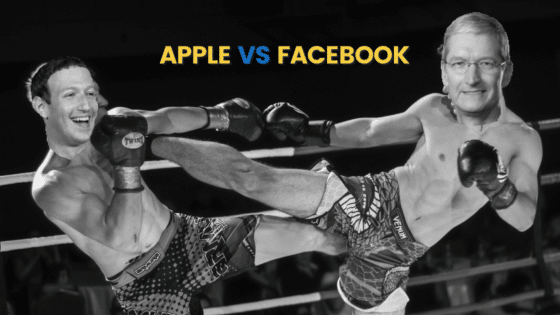Author, Zamilur Rahman Shuvo
“What is all the fuss around business competitions? Only a week into my much-anticipated (a feeling that predictably didn’t last long) undergrad life and I think I have heard of business competitions more times than I was bullied in high school for my skin colour.” And thereafter took place a conversation between me and a university senior that surged me onto a journey of exploration.
What exactly does business competitions have to offer? Why is it that students hurl towards a registration booth of business competition as fast as moviegoers raced to buy tickets for Avengers: Infinity War?
These are the questions I asked myself back in 2018. Not much has changed since then. Racially charged slurs are still overlooked as locker-room touches of sarcasm in high schools. Business students still go gaga over business competitions. But things have changed for me on a personal level. Now the noise surrounding the aura of business competitions make sense. Back then there was distortion, now there’s harmony.
Why do it?
Over the past few years, business competitions have propelled into a new stratosphere of popularity. But none have made waves like the Marketing competitions, perhaps. And why wouldn’t it? Marketing competitions sound exciting, its deliverables seem compelling. But what else do they offer?
The first, and albeit the most obvious perk that marketing competitions have to offer is a taste of the real world. The stage provides a glimpse at the model of how the corporate sector operates. Once you participate in a couple of business competitions, you will start to understand both the functionality as well as the framework.
Marketing competitions put you through real-life scenarios where you’ll be assigned to complete several probable tasks. It can be the ideation of a product or rebranding it, coming up with an Integrated Marketing Campaign (IMC) for a company or feasible ideas that’ll boost sales. There’s an abundance of tasks that you will find yourself working on, depending and relevant to the segment that the competition is focused upon. And here’s where things get interesting- it’s all connected by a thread to real life.
Business cases are structured, focusing on allowing the participants to work on a prevalent or ongoing issue a company might be facing. This makes case competitions all the more attractive because it presents the ideal prospect that the aspirants can pursue, and in the process, get a taste of the game.
These case competitions also offer practicality. Academic courses can only provide a methodic and theoretical grasp on a particular topic. But bookish knowledge has its limitations. Business competitions, consequently, make up for those limitations. By participating in different competitions you get to act on the theories you have read about, or memorised at the last minute before exams (we’ve all been there). It’s like reading a book and then being allowed to adapt it into a movie (what comes out of that is a different conversation). The curriculum equips you with content, whereas competitions let you execute.
Through participation in these competitions, there’s also the scope of researching that academic curriculum doesn’t offer quite often. You can go on field projects, conduct market research, and scour the internet for relevant data, conduct polls, interview people- the list goes on. At the end of the day, what it all amounts to is that you come out of it being a bit more learnt by gaining a whole lot more intellect and insight.
Competitions also bring together the most prominent names of the corporate world under one roof for one night. The event itself presents an unmissable opportunity for the participants to interact with some of the biggest industry leaders. You can ask for insights, guidance, a few tricks of the trade to help you develop yourself. Folks, it’s all presented to you on a silver platter. As Porter Gale puts it- “Your network is your net worth!” We often forget that Constructive Criticism is a two-way street. It’s as much a tale of offering as it is of acceptance.
Business competitions can help you with that. The Q/A sessions after each presentation are a floor of feedback. Judges reflect upon what they thought of your presentation and offer their two cents on the overall performance, accompanied by a few (or more if you are unlucky) tricky questions. From a participant’s viewpoint, it teaches you to accept the mistakes you’ve made and have an open mind towards criticisms. Most participants start sweating like Jordan Peele at the thought of Q/A sessions. Take it from a guy who’s been shredded into pieces during his fair share of competitions- you can still come out of it in one piece and learn a few things along the way.
Surprisingly, if you strip away all the shenanigans of prize-money and limelight focus, there’s still a lot more to marketing competitions (no, suiting up for gala nights is not one of them). Even if you don’t end up winning anything, it doesn’t necessarily mean that you are going home empty-handed. There’s a very good chance that your standout performance won’t go unnoticed and you may end up landing a job offer from an esteemed presentee at the event.
The silver lining of losing out on prize money is that it closes a door on you but leaves you out with the chance to explore all the other doors open for you. Ziad Al Noman Pranto, a fresh graduate from University of Dhaka, Bangladesh shares his experience, “My team, unfortunately, lost out on the top 3 positions at one of the country’s biggest business case competitions. But my performance caught the attention of the judges.
Later, I was offered to apply for a position in one of the biggest MNCs in South Asia and eventually, I got the job. Now I look back on that day and realise that I may have lost out on the prize I was aiming for but ended up gaining a lot more.”
But these marketing case competitions are a work in progress itself. First of all, there is a hyper frequent tendency of inviting the same group of industry experts with a bit of shuffling here and there, to such an extent that it will remind you of the late Stan Lee and his MCU cameos. The rest of the bunch, despite having intellectual superiority, is left behind. Many reasons can be attributed to this scenario, including that they haven’t excelled in the exposure parameter standardised by the status quo, or because they keep a low profile. But when it’s all said and done their list of accomplishments and acumen does demand consideration for a seat on the judges’ panel.
Embracing variety and welcoming diversified talent is one of the core essences of business competitions. But until and unless organisers acknowledge those experts who deserve the spotlight, competitions won’t entirely embody its slogan. Past incidents have raised the question of credibility as well from participants’ ends. An anonymous spokesperson provides relevant anecdotes, “We proposed an idea which was later turned into a marketing campaign by one of the sponsoring companies. But since we didn’t make it to the finale of the competition we didn’t receive any credit. I’d urge the organisers to take a clear stance on this issue as soon as possible.”
So what is the right way to approach? Aspiring participants should be in the right headspace before taking on the world of case competitions as well. It’s better not to pursue glory in all types of business competitions. You can try a hand to figure which field you will excel on. But once you do that, focus on staying on that particular lane instead of hopping into multiple. When it comes to business competitions, being a master of one is preferred to being a Jack. If you want to pursue a career in Marketing, then focus on relevant themed competitions. Become the best in one aspect. I mean, hey, Tiger Woods was the best at hitting golfs but that ended up making him a legend.
There’s a very likely possibility that you won’t make it big right away. But that doesn’t encompass the end of the road for you. The good things in life take time to come to fruition, so stay at it. Success is a byproduct of commitment, dedication, and hard work. Focus on the former and the latter will follow suit. After all, it worked out pretty well for Justice League Snyder Cut fans right?

Are you a student or an aspiring marketer? Marketing In Asia’s Youth Marketing Forum brings you the best of Asia’s young voices. Join us on YMF by sharing your thoughts and ideas in the form of articles, comments or perspectives here.



















